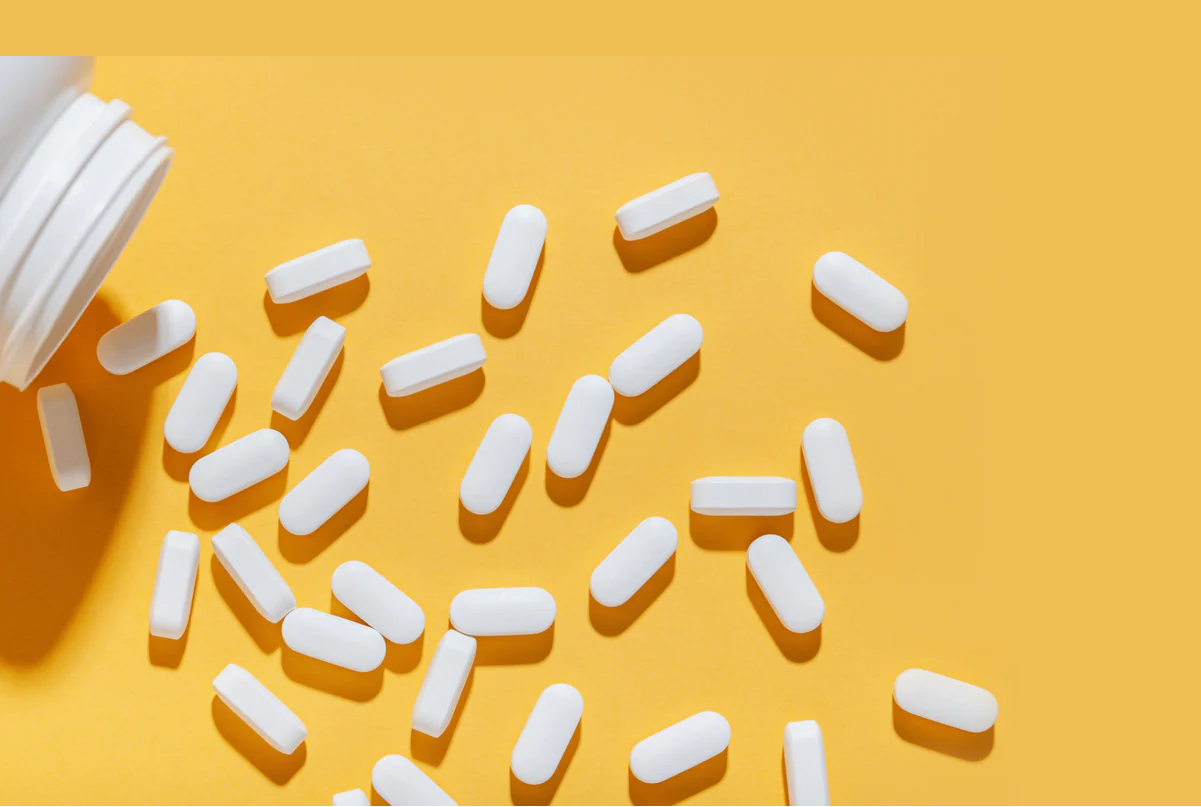Boron is a trace element found in plants, soil, and water that plays a crucial yet often overlooked role in human health. It is involved in bone metabolism, hormone regulation, and brain function. Despite not being classified as an essential nutrient, research suggests boron impacts cognitive performance, bone health, and inflammatory responses (Nielsen & Eckhert, 2019).
In this guide, we will explore the latest scientific findings on boron, its biological significance, dietary sources, and potential health applications, following an engaging, science-based approach inspired by Dr. Andrew Huberman.
Boron and Brain Function
Research suggests boron is important for cognitive processing, memory, and coordination. A landmark 1994 study published in Environmental Health Perspectives found that individuals supplementing with 3.25 mg of boron daily performed better on memory and hand-eye coordination tasks than those with lower intakes.
This study set the stage for further research, yet much of what we know about boron’s effects on the brain is derived from animal studies. Boron appears to influence neuronal signaling, neurotransmitter activity, and inflammation modulation—all of which affect cognition and mental clarity (Penland, 1994).
Practical Uses for Brain Health:
-
Enhances cognitive function and coordination (preliminary studies suggest possible benefits for reaction time and focus).
-
May support neuroprotection, though more research is needed in human trials.
-
Works synergistically with other micronutrients like magnesium and vitamin D for optimal brain function.
How to Incorporate:
If optimizing brain function is your goal, boron-rich foods like avocados, nuts, and dried fruit should be included in your diet. Supplementation should be carefully considered and ideally discussed with a healthcare provider.
Boron and Bone Health
Boron is an essential cofactor in bone metabolism, influencing calcium, magnesium, and vitamin D utilization (Nielsen, 2012). It helps extend the half-life of vitamin D and estrogen, both of which are critical for maintaining bone density.
Studies suggest that low boron levels are linked to decreased bone strength and higher risk of osteoporosis. Research published in The Open Orthopaedics Journal found that individuals with low vitamin D levels also had low boron levels, reinforcing the interdependence between these nutrients.
Practical Uses for Bone & Joint Health:
-
May enhance calcium absorption, supporting stronger bones and reducing the risk of fractures.
-
Potentially helps manage osteoporosis by preserving bone density.
-
Could aid in arthritis symptom relief, as boron plays a role in inflammation modulation.
How to Incorporate:
To support bone and joint health, consume boron-rich foods such as prunes, raisins, almonds, and leafy greens. Studies on boron supplements for arthritis are promising but require more clinical validation.
Boron’s Role in Hormone Regulation
Boron influences the metabolism of steroid hormones such as testosterone and estrogen. A 2011 study in The Journal of Trace Elements in Medicine and Biology reported that boron supplementation increased free testosterone levels by 28% in men after one week of intake. This is particularly relevant for athletes and aging individuals looking to optimize hormonal health.
Practical Uses for Hormonal Balance:
-
Supports testosterone production in men (potentially aiding muscle mass and energy levels).
-
Extends estrogen’s half-life in the body, which is crucial for bone health and menopausal support.
-
May modulate inflammatory markers, beneficial for overall metabolic health.
How to Incorporate:
For natural hormone support, dietary sources like peanut butter, beans, and wine provide adequate boron. Those looking for supplementation should consult with a health professional before adding boron capsules to their routine.
Boron Safety and Dosage Considerations
While boron is beneficial, too much of a good thing can be harmful. There is no official Recommended Daily Allowance (RDA) for boron, but studies suggest an acceptable safe range is 1–13 mg per day (WHO, 1996). Excessive intake can lead to nausea, GI distress, and, in extreme cases, toxicity.
Tolerable Upper Intake Levels for Boron (Institute of Medicine, 2001):
| Age Group | Upper Limit (mg/day) |
|---|---|
| 1–3 years | 3 mg |
| 4–8 years | 6 mg |
| 9–13 years | 11 mg |
| 14–18 years | 17 mg |
| Adults (19+) | 20 mg |
Potential Risks:
-
High doses (>20 mg/day) can cause toxicity, leading to digestive discomfort, fatigue, and even hormonal imbalances.
-
Not well studied in pregnant women—caution is advised.
-
Individuals with kidney disease should consult their doctor before increasing boron intake.
Boron-Rich Foods vs. Supplements
For most people, dietary boron intake is sufficient, particularly if you eat plant-based foods, nuts, and grains. If you’re looking to optimize boron intake without supplements, here’s where you’ll find it:
Top Dietary Sources of Boron (USDA Data):
| Food | Boron Content (mg per serving) |
| Prune juice (1 cup) | 1.43 mg |
| Avocado (½ cup) | 1.07 mg |
| Raisins (1.5 oz) | 0.95 mg |
| Peaches (1 medium) | 0.80 mg |
| Grape juice (1 cup) | 0.76 mg |
| Peanuts (1 oz) | 0.48 mg |
| Beans, refried (½ cup) | 0.48 mg |
| Peanut butter (2 tbsp) | 0.46 mg |
For those with low dietary intake or increased needs (athletes, aging populations, or those with joint concerns), a boron supplement between 3–6 mg/day may be considered under medical supervision.
Final Thoughts: Should You Take a Boron Supplement?
Boron plays a critical role in bone health, hormone regulation, and cognitive function, but most people meet their needs through diet. If you’re looking to optimize brain performance, strengthen bones, or support hormone balance, strategic dietary intake is the first step.
Who Might Benefit from More Boron?
-
Individuals with osteoporosis or joint pain.
-
Athletes or aging men looking to support testosterone levels.
-
Those with low dietary intake of boron-rich foods.
Before adding a supplement, test your dietary intake first—and remember, nutrition is always about balance.

